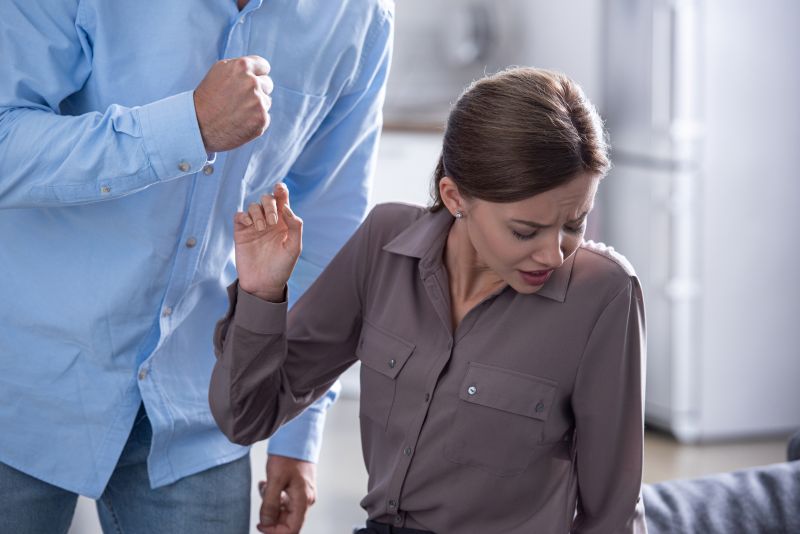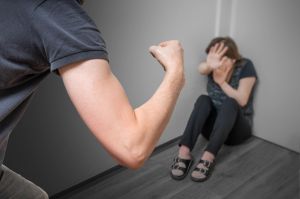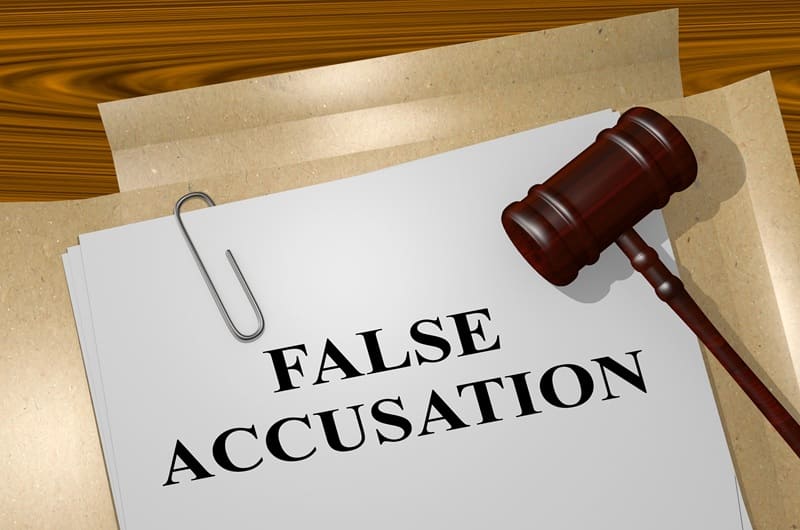How Domestic Violence Allegations In VA Impact Sentencing
How Domestic Violence Allegations In VA Impact Sentencing
In Virginia, just being accused of domestic violence can turn your life upside down. These allegations trigger fast legal action—protective orders, aggressive prosecution, and serious consequences—even before a conviction happens. Your reputation, job, and relationships can all take a hit.
This guide breaks down how domestic violence accusations affect sentencing in Virginia. We’ll cover the charges you could face, what factors can lead to harsher penalties, and which rights you might lose, like owning a firearm. You’ll also learn how protective orders work and how the right defense strategy can make a difference.
Domestic Violence Charges In Virginia
Virginia law treats domestic violence as a distinct category of assault, specifically when it involves a family or household member. This includes spouses, ex-spouses, co-parents, siblings, in-laws who live in the same home, and individuals who have cohabited within the past year.
Under the Virginia Code, even a single act of assault against one of these individuals may result in a domestic assault charge. The seriousness of the accusation is not solely based on physical injury—threats or attempts to cause harm can also trigger charges.
A first offense is typically classified as a Class 1 misdemeanor, carrying penalties of up to 12 months in jail and a $2,500 fine. However, a third offense within 20 years elevates the charge to a Class 6 felony, which may lead to one to five years in prison.
Understanding the legal definition and elements of domestic violence is crucial, but equally important is recognizing how these allegations influence the outcome of a case. Beyond the charges themselves, domestic violence claims can significantly affect how a judge or jury views the accused during sentencing.
Impact Of Domestic Violence Allegations On Sentencing
Sentencing in domestic violence cases is rarely straightforward. In Virginia, an allegation alone can influence how a judge views the case, even before a verdict is reached.
While sentencing guidelines exist to promote consistency, judges maintain considerable discretion, especially when aggravating factors are involved. These factors can tip a sentence from lenient to severe, based on the perceived level of threat or harm.
- Prior convictions, especially for domestic violence or related offenses.
- Physical injuries sustained by the alleged victim.
- Use or display of a weapon during the incident.
- The presence of the alleged event occurred.
These circumstances often justify enhanced penalties, even when the current charge is a misdemeanor. Judges may see behavior patterns or a heightened risk of future harm and respond with harsher sentencing. When aggravating elements are present, the court may deviate from standard recommendations and impose stricter consequences.
In cases involving protective orders, these sentencing implications often grow more serious and immediate. Understanding how protective orders function is the next critical step.
Protective Orders & Their Consequences
Protective orders are a typical legal response in domestic violence cases in Virginia. These orders prevent further contact between the accused and the alleged victim. Even without a conviction, a protective order can significantly affect a person’s living situation, parental rights, and daily freedom.
Types Of Protective Orders
Virginia law provides several forms of protective orders, each with its own duration and level of restriction. The type issued often depends on the severity and the perceived threat’s immediacy.
- Emergency Protective Order (EPO): Issued by a magistrate or judge, valid for up to 72 hours.
- Preliminary Protective Order (PPO): Lasts up to 15 days or until a full court hearing.
- Permanent Protective Order: Can be granted after a hearing and remain in effect for up to two years, with the possibility of extension.
The specific order issued can restrict access to shared housing, limit parental contact, and impose strict no-contact rules. Violating any condition of a protective order may result in criminal charges and additional penalties.
Legal & Personal Consequences
Once in effect, protective orders bring significant legal obligations and personal limitations. These orders can influence the outcome of ongoing criminal proceedings and complicate everyday life.
- Removal from a shared residence, regardless of ownership or lease status.
- Loss or restriction of custody and visitation with minor children.
- Prohibition of contact, including indirect communication through third parties.
Protective orders often follow the accused long after the initial hearing. They can influence custody disputes, employment prospects, and even gun ownership. When a protective order is combined with a criminal charge, the legal and practical consequences can be long-lasting.
Loss Of Rights Following A Conviction
A conviction for domestic violence in Virginia extends beyond jail time and fines. It can result in the permanent loss of key civil rights. These losses affect personal freedom, career opportunities, and the ability to maintaining a stable household.
Firearm Restrictions
Federal and state laws impose strict firearm bans following domestic violence-related convictions. Even a misdemeanor can permanently disqualify someone from owning or possessing a firearm.
- Virginia Code prohibits firearm possession during the term of any protective order.
- Federal Law imposes a lifetime ban on firearm ownership for people convicted of misdemeanor domestic violence.
These laws affect military personnel, law enforcement officers, hunters, and anyone in a firearm-related profession. In many cases, this restriction alone can end a career or disqualify a person from future employment.
Employment & Housing Impacts
A domestic violence conviction often appears on background checks conducted by employers, landlords, and licensing boards.
- Job applications may be denied due to perceived risk or liability.
- Professional licenses can be suspended, revoked, or refused.
- Rental applications may be rejected, especially if the conviction suggests a risk to others.
The consequences of a conviction can touch every corner of a person’s life. When rights are lost, rebuilding stability becomes far more difficult. Legal defense must be proactive and strategic to avoid these long-term setbacks. That makes the role of experienced domestic violence lawyers critically crucial in these cases.
The Role Of Lawyers For Domestic Violence In Virginia
A defense attorney plays a critical role in protecting the rights of individuals accused of domestic violence in Virginia. These cases involve complex legal procedures, and the consequences of a misstep can be severe.
A skilled attorney evaluates the evidence, challenges procedural errors, and builds a defense strategy that reflects the facts of the case, not just the allegations. Legal representation becomes vital when prior convictions or aggravating factors threaten harsher sentencing.
Effective defense strategies may involve disputing the accuser’s credibility, presenting evidence of self-defense, or highlighting inconsistencies in the prosecution’s case. An attorney also negotiates with prosecutors to reduce or dismiss charges where possible.
Given the high stakes involved in domestic violence cases, having a skilled legal team by your side is not just beneficial—it’s essential. An experienced law firm does more than represent you in court. It protects your rights, guides you through every legal step, and ensures your voice is heard.
The Irving Law Firm Advocates For Your Rights
At The Irving Law Firm, we understand that being accused of domestic violence is overwhelming and deeply personal. These cases demand more than legal knowledge—they require commitment, discretion, and an unwavering dedication to defending your rights.
Our team approaches each case with the attention it deserves, ensuring every client receives a strong, personalized defense. We handle all domestic violence cases, from protective order hearings to courtroom representation.
Whether the goal is a case dismissal, reduced charges, or protecting custody rights, we work strategically to achieve the best outcome possible. We also guide our clients through the long-term effects, helping to safeguard their future beyond the courtroom.
Our firm is built on trust, communication, and results. We don’t just take on cases—we take on causes. If you’re facing domestic violence allegations, let us stand between you and the consequences. We’re ready to fight for you.
Domestic violence allegations in Virginia carry serious legal consequences that can impact every part of a person’s life. From enhanced sentencing and protective orders to the loss of key rights and future opportunities, these charges demand a strong, informed legal response.
With the right defense strategy, reducing penalties and protecting your reputation is possible. The Irving Law Firm in Manassas provides experienced, committed representation to help clients navigate these challenges and secure the best possible outcome. Your defense starts with a call.






